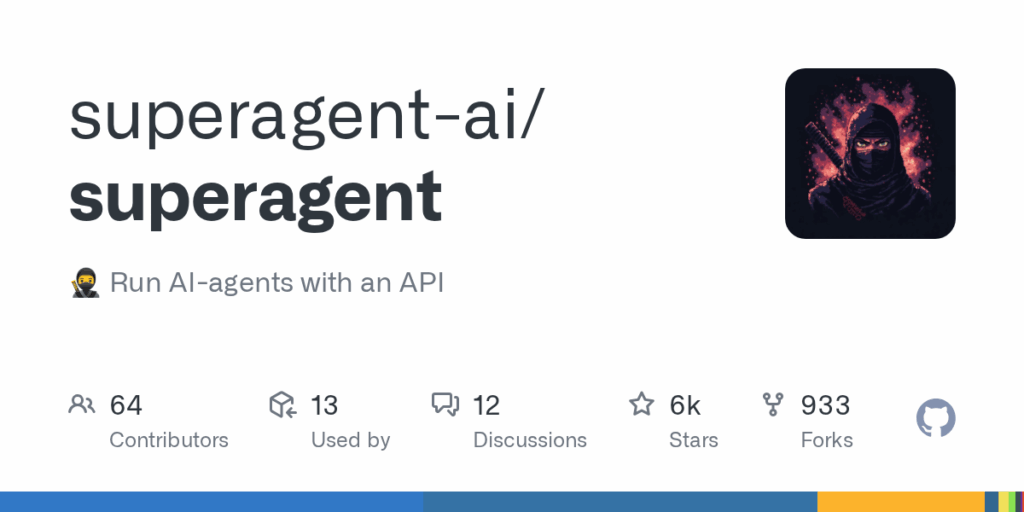superagent
Basic Information
Superagent is an open source AI assistant framework and API designed to let developers add powerful AI assistants to their applications. It provides infrastructure to build assistants that use large language models, retrieval-augmented generation, and generative AI. The project targets common AI application types such as document question answering, chatbots, co-pilots, content generation, data aggregation, and workflow automation agents. It exposes a REST API and language SDKs so teams can integrate assistants into services and products. The repository emphasizes extensibility and production readiness by supporting memory, streaming responses, vectorization, third-party vector stores, and concurrency. The project is community driven, backed by Y Combinator, and includes documentation, tutorials, and example SDKs for common developer environments.








